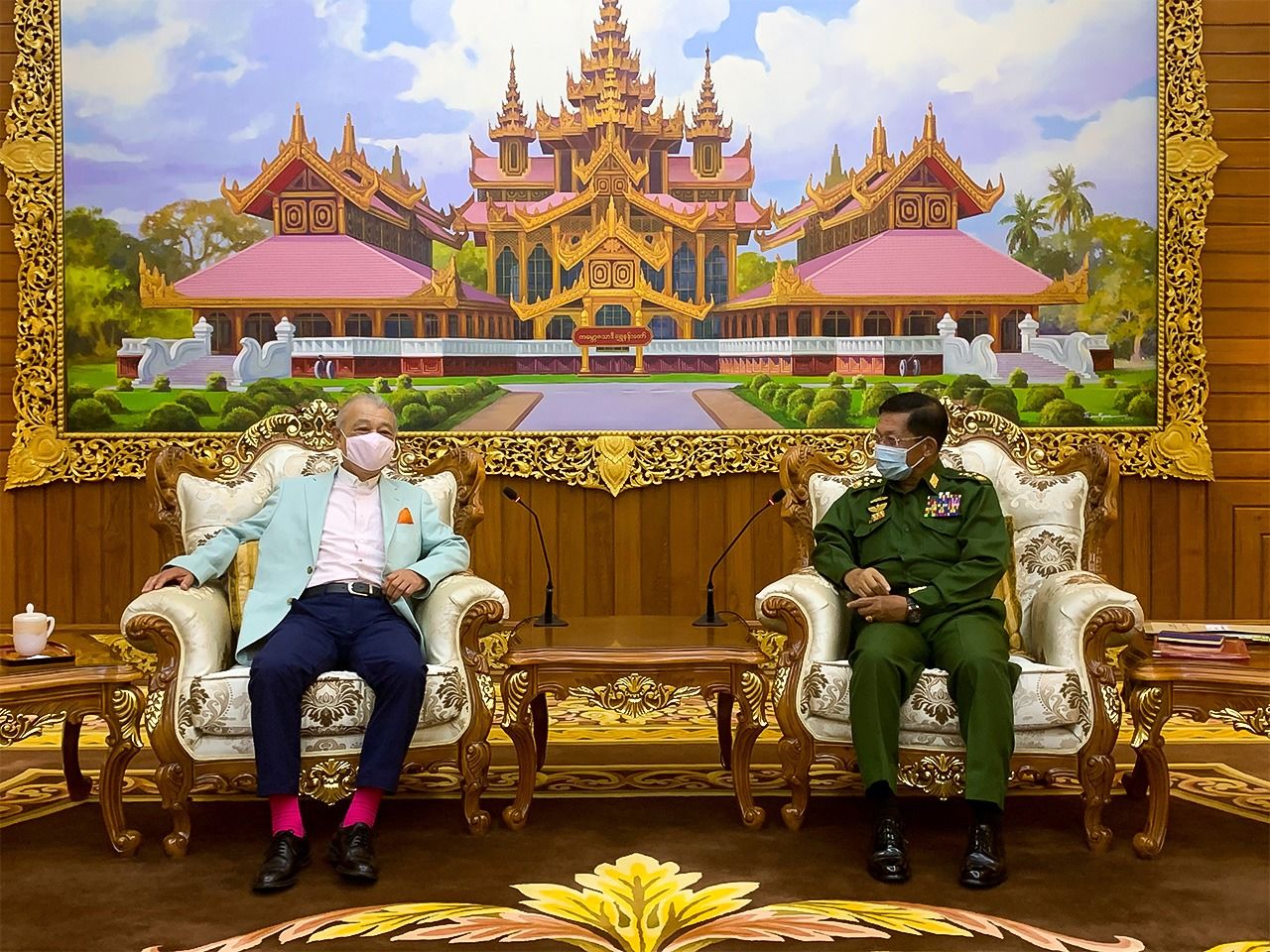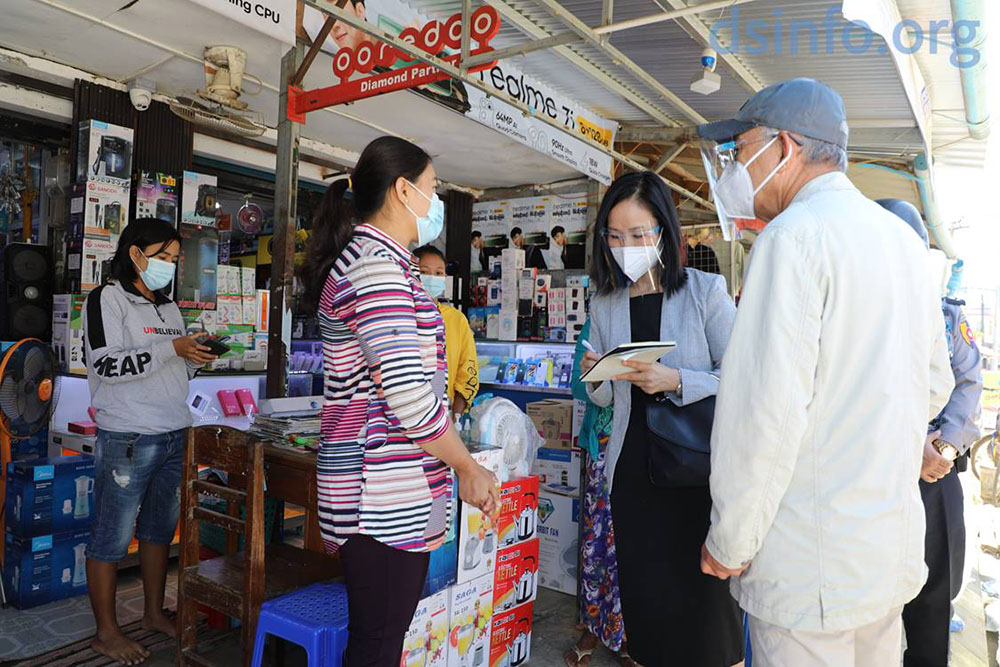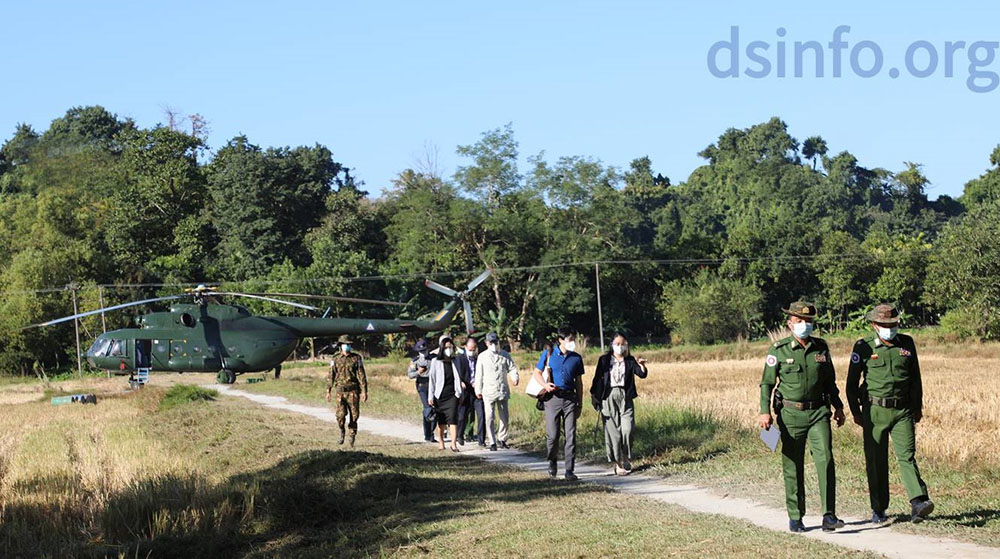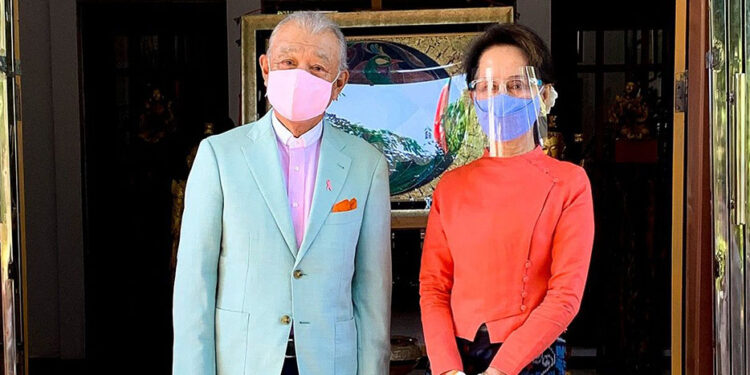Last month, Japan’s special envoy to Myanmar, Yohei Sasakawa, embarked on a round of shuttle diplomacy between Rakhine State and Naypyitaw.
Just before the Nov. 8 election, he traveled to Myanmar to meet with State Counselor Daw Aung San Suu Kyi and the military commander-in-chief, Senior General Min Aung Hlaing.
On Nov. 28, the special envoy, who is also the chair of the Nippon Foundation, flew to the Rakhine State capital Sittwe by military jet and held meetings with local politicians including party representatives and lawmakers. So far, he has received a positive reception.
Sasakawa has called on Myanmar’s leaders to “hold elections as soon as possible in Rakhine State where elections could not be held on Nov. 8.” Voting was suspended in parts of the state due to clashes between the Myanmar military (or Tatmadaw) and the Arakan Army (AA).
Due to the cancellation of balloting, over 1.2 million out of 1.64 million voters in Rakhine State were disenfranchised, according to the state election sub-commission.
Just after the election, the AA issued a statement calling for elections to be held in nine townships where voting could not be held on Nov. 8, and to the surprise of many, the military welcomed it. It is obvious that the Japanese envoy played a role in securing agreement on the issue between the two sides.
There has been no fighting since then. The military has, however, deployed army, air force and naval assets in the area. If the AA fails to respect the initial agreement, the Tatmadaw will no doubt launch an all-out offensive.

Last week, Myanmar’s top generals led by Lieutenant General Yar Pyae held a virtual meeting with AA leaders.
The two sides agreed to maintain stability and uphold a temporary ceasefire.
Shortly after the election, the military set up a peace negotiation committee to kickstart peace talks with ethnic armed organizations (EAOs), regardless of whether they had signed the Nationwide Ceasefire Agreement, with the aim of achieving a lasting peace. Lt-Gen Yar Pyae, the current head of the Joint Ceasefire Monitoring Committee, leads this new committee.
The military also asked the AA not to disrupt deliveries of aid and relief items to Chin State’s Paletwa area, which has been the scene of fierce fighting since last year. The AA has also agreed not to stand in the way of elections in Rakhine State. And while observers, including the Japanese, agree that much more needs to be done, the general feeling is that the envoy’s initiative has been well received on both sides.
In an exclusive interview with The Irrawaddy last week, Japanese Ambassador Ichiro Maruyama said that Sasakawa, in his capacity as Special Envoy of the Government of Japan for National Reconciliation in Myanmar, had held in-depth conversations with Snr-Gen Min Aung Hlaing both before and after the elections.
“The commander-in-chief also asked Mr. Sasakawa for help,” the ambassador said. In response, the Japanese envoy reached out to Rakhine and AA leaders and conveyed to them messages from the military and government leaders.
It is no secret that Sasakawa and Snr-Gen Min Aung Hlaing have developed a close relationship in recent years; the Myanmar general is comfortable with the envoy and listens to him. The same cannot be said of other foreign peace negotiators, including Chinese special envoy Sun Guoxiang.
Moreover, Japan’s role in mediating the Rakhine conflict has received praise from ethnic leaders following the issue.

Unlike some of his Western counterparts and other diplomats, Ambassador Maruyama has brought a constructive approach to the discussion of the Rakhine issue. He said, “The Japanese government has always understood that there is a historical issue in Rakhine State. It is a very complex situation, so no one can solve it immediately.”
When Myanmar faced international condemnation amid allegations of genocide in Rakhine, Tokyo defended the country.
In December 2019, amid mounting international criticism of Myanmar State Counselor Daw Aung San Suu Kyi over her denial of genocide allegations at the International Court of Justice, the Japanese ambassador said his government firmly believed that no genocide was committed in the country, and expressed hope that the court would reject Gambia’s request that provisional measures be taken against Myanmar.
“I don’t think that the Myanmar Tatmadaw [military] committed genocide or [had the] intent of genocide. I also don’t think that it is their intention to kill all the Muslim residents in Rakhine,” Maruyama said.
Japan is no stranger to Rakhine State or its long history of communal strife and conflict.
During World War II, Japanese forces arriving in northern Rakhine, where tensions between Muslims and ethnic Rakhine were already boiling over, witnessed communal violence and mass killings by both sides. The Japanese army also trained Myanmar’s legendary “Thirty Comrades” and established the Burma Independence Army, which fought against British rule in Myanmar. General Aung San, the father of Daw Aung San Suu Kyi, was the leader of the “Thirty Comrades”.
China is also involved in a deep seaport project and oil and gas pipelines in resource rich Rakhine. While Western countries keep their distance, China is steadily moving to expand its influence in the area through several mega projects and has even proposed a rail link between China and Myanmar.

This leaves Japan as China’s only potential rival for influence in Myanmar.
Undeniably, Myanmar citizens generally have a positive image of Japan and its investments in Myanmar.
Government and military leaders also expect Japan to continue investing in Myanmar and to play an active role in the national reconciliation process.
Just after the election, Sasakawa discussed what he described as Daw Aung San Suu Kyi’s “considerable expectations” of Japan. Tokyo has already forgiven 500 billion yen (6.31 trillion kyats or US$4.79 billion) in development loans to Myanmar, and next year the Japanese government plans to extend economic assistance worth $1.2 billion to $1.3 billion. He added that the State Counselor acknowledged Japan’s importance as a significant donor partner with a major presence in Myanmar. “She thanked me for the assistance and cooperation the Japanese have provided to date and hoped that her country would continue to be able to depend on Japan for help in bringing about reconciliation among Myanmar’s peoples and aiding its economic development,” the envoy added.
You may also like these stories:
What Another NLD Victory Means for Myanmar and the World
Western Media Fail to Grasp Meaning of Myanmar Ruling Party’s Election Win
Whoever Wins the Election, the Country Must Be the Winner

















